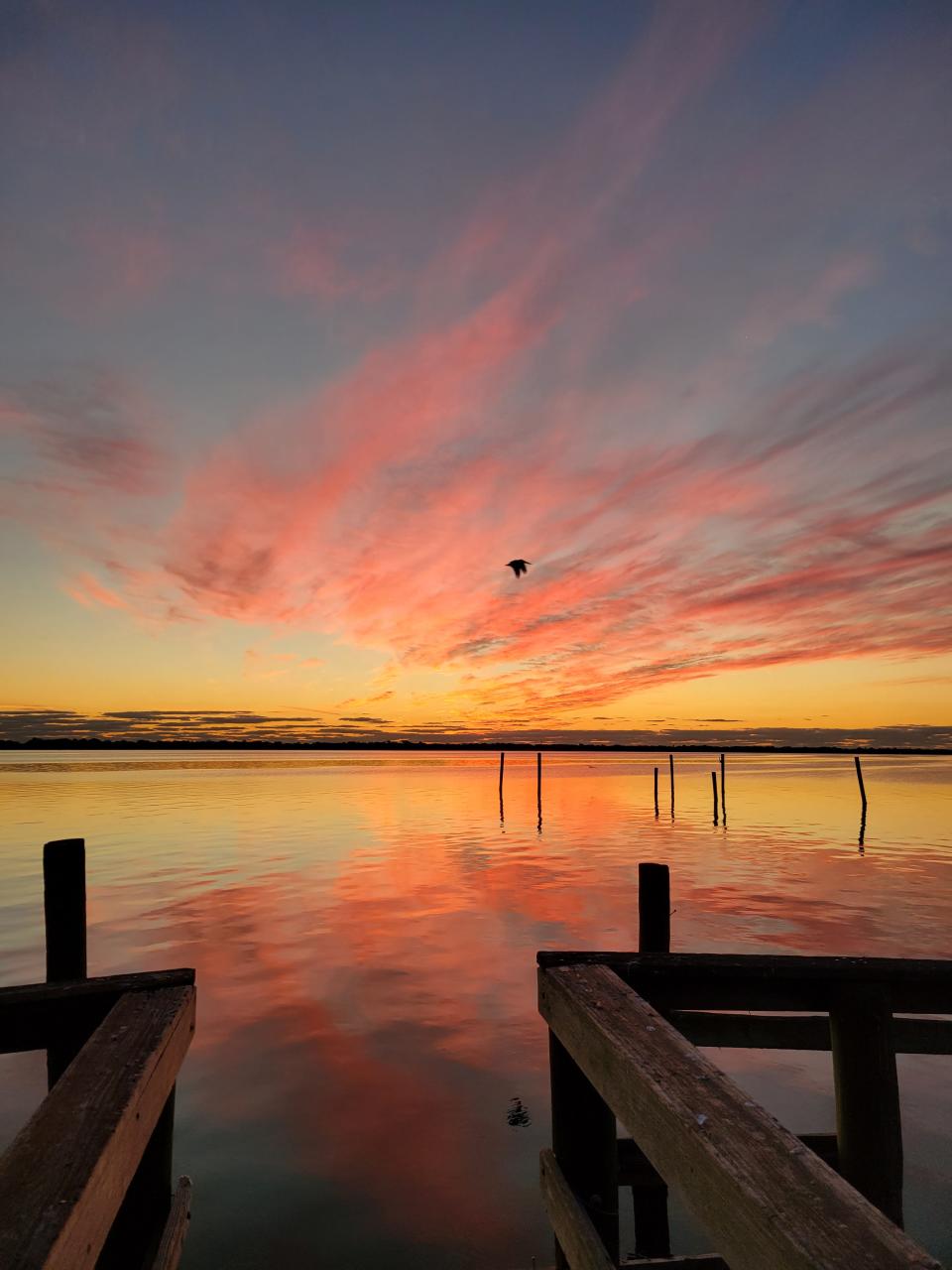Learn Florida-friendly gardening practices at this free March seminar | Sally Scalera
Would you like to learn the latest information about efforts being made to help the Indian River Lagoon? Do you know how important it is to have healthy soil to protect the IRL, how to create healthy soil, and how much easier it is to work with nature instead of against it?
Are you interested in finding out why what you plant matters? And one last question: Would you like to learn the tips and tricks of caring for native plants?
If you answered yes to any of these questions, go to your calendar and block 9 a.m. to 2 p.m. Saturday, March 23.
That's when our annual Florida-Friendly Landscaping Seminar will be held at the Melbourne Auditorium. Vendors will be selling native plants, gardening supplies, worm castings, etc., along with educational booths and a rain barrel workshop. The vendors will be setting up that morning, so come early.

The seminar will begin with Kathy Hill from the Indian River Lagoon National Estuary Program. She will give us an update on the efforts to help the Indian River Lagoon and discuss the various projects that have been completed, those in the works and the ones planned. Hear the most recent update on the IRL, and if you have any questions or suggestions, participate in the Q&A session at the end of each session.
Kathy’s talk is scheduled for 9:15 to 10 a.m.
I will present the next session, “Love your soil – Love the IRL,” from 10 to 10:45 a.m. My presentation will be on my favorite topic: Healthy soil, and why it is needed to protect water quality.
The other benefits of healthy soil are healthy plants and nutritious food. The soil food web is crucial when gardening, so learn how to establish it around the roots of your plants. Plants produce root exudates of simple and complex sugars and other carbohydrates to attract beneficial bacteria and fungi. As the bacteria and fungi consume the root exudates, their populations grow.
The beneficial fungi, mycorrhizae, form symbiotic relationships with plants, receiving carbohydrates from the root exudates and providing the plant with nutrients, including water.
Some plants, like corn, form symbiotic relationships with many species of mycorrhizae. Once the bacterial and fungal base of the SFW populations gets large enough, the predatory protozoa and nematodes will arrive to complete the nutrient cycling process in the soil. There are many types of beneficial nematodes, though the infamous root-knot nematode or other root-feeding types overshadow them.
Predatory nematodes are categorized by what they eat: bacteria, fungi or nematodes. The nematodes that consume other nematodes prefer to eat the ones that feed on roots.
Protozoa come in two types: amoebae and flagellates. As the predators feed on their prey, they help to cycle the nutrients in the prey’s body and make the nutrients and water available for the plants to absorb.
This is how nature “fertilizes” plants. Just small amounts, when needed, with no waste or leaching. The efficient nutrient cycling and the organic matter’s nutrient and water-holding capacity help protect water quality. The soil microbes were present before the first terrestrial plant showed up, so it is logical that they would work together.
From 11:15 a.m. to noon, Tim Harrison of Native Butterfly Flowers will present “What you plant matters!” It doesn’t matter whether it is to support native bees or nurture caterpillars. Choosing the correct plants is important.
The last presentation, “Nurturing Native Landscapes: Tips and Tricks,” will be from 12:15 to 1 p.m. by Skip Healy of Change of Greenery. He will provide information that will help you maintain native plants so they look their best and remain healthy.
This year, there will also be a Rain Barrel workshop, provided by the Brevard County Natural Resources Department in collaboration with the EPA, at the conclusion of the event. Residents can sign up for a free rain barrel (only 30 are available, but everyone is welcome to attend the workshop) at eventbrite.com. Search "Florida-Friendly Landscaping Rain Barrel Workshop." After the workshop, the rain barrels will be distributed.
At the conclusion of the four talks, door prizes will be raffled off to everyone still in attendance. On the way out, everyone who turns in a completed survey will also receive a goody bag that contains a hose nozzle and a pair of gardening gloves. The surveys are important because we use them to determine the topics presented at the next year’s seminar.
Free tickets are available at 2024FFLSeminar.eventbrite.com, though registration is not mandatory.
So, if you’re free March 23, join us for a fun and educational event.
Sally Scalera is an urban horticulture agent and master gardener coordinator for the University of Florida’s Institute of Food and Agriculture Sciences. Email her at sasc@ufl.edu.
More by Sally
February in your Brevard yard: Here's what to do this month | Sally Scalera
Growing your own herbs can have delicious results | Sally Scalera
Add color and shade to your Florida landscape with these flowering trees | Sally Scalera
This article originally appeared on Florida Today: Florida-Friendly Landscaping seminar set for March 23 in Melbourne

